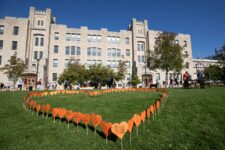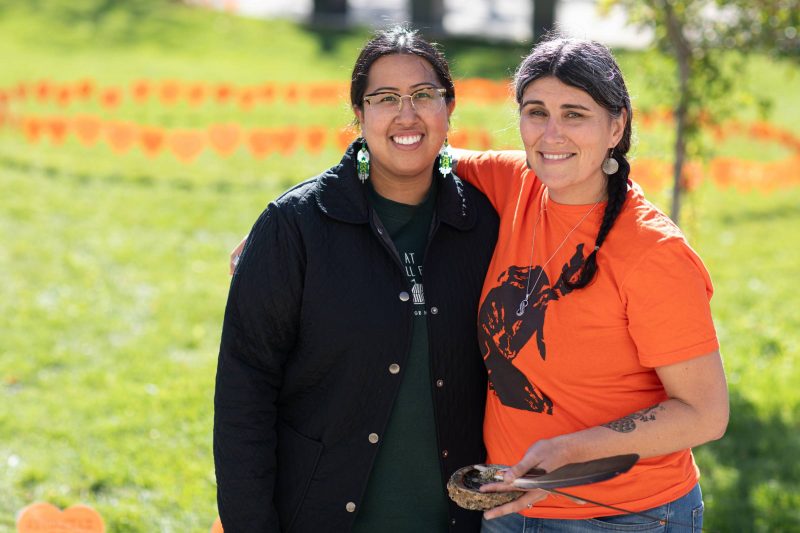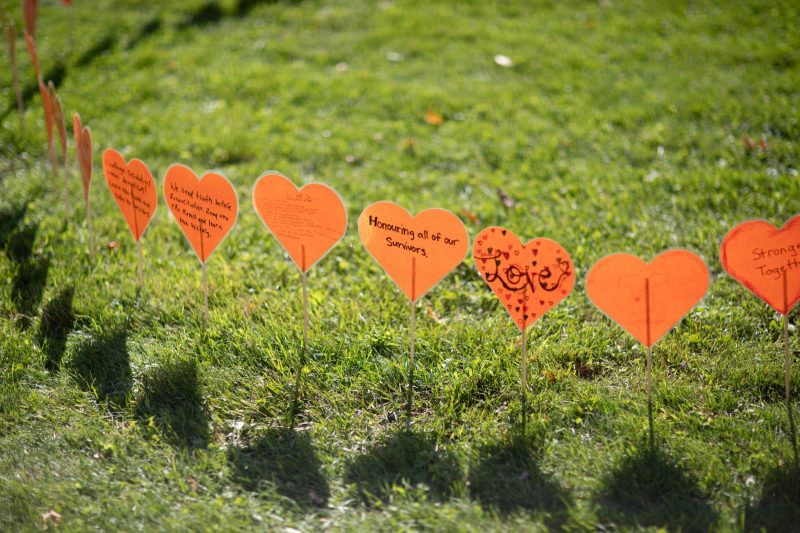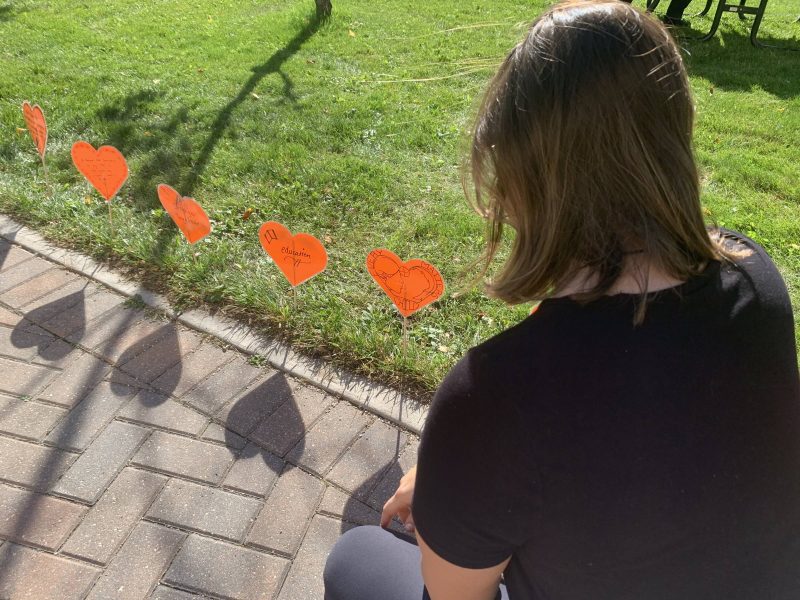
UM Today | Heart garden is in a new space, with the same impactful goal
September 24, 2024 —
It’s in a different spot, but the purpose and goal of UM’s heart garden remains the same.
“It is to honour our relatives, the children who never came home from residential schools and their families who had their children taken from them and the communities that were missing all of those children,” says Denise Tardiff, Manager, Manitoba Collaborative Indigenous Education Blueprint.
In the lead up to the National Day for Truth and Reconciliation (Sept. 30), Tardiff joined staff from the Office of V.P. Indigenous (OVPI) Engagement and Communications and allies to create a heart garden for a second year in a row. Hearts with messages of empathy for residential school survivors or commitments to acts of Reconciliation surround the outside of the Buller greenspace, while a series of hearts in the shape of a large heart, stand in the middle of the space.
Organizers say it was important to start in a good way, with good intentions and when each heart was planted into the earth, an offering of tobacco, and a prayer was offered while the entire area was smudged.

Denise Tardiff, Manager, Manitoba Collaborative Indigenous Education Blueprint with Kayla Lariviere, Lead, Indigenous Engagement in front of the 2024 Heart Garden. Photo: Mike Latschislaw
“We hope that it will be respected, and people will be cognizant of the footprint they’re leaving if they come and read these (hearts) and imagine what it would have been like for them to suddenly lose brothers, sisters, cousins, aunties, uncles and have their communities cut in half,” says Tardiff.
In total, 465 hearts fill the space, and the group hopes next year that the garden and the powerful messages it holds, will only grow.
“We want to continue to grow it every year. We’ve had people taking photos, asking questions. I had someone come up to me and say, thank you for doing this, so I think it’s having an impact,” says Kayla Lariviere, Engagement lead, Indigenous Engagement and Communications, OVPI.
The hearts will remain until Thursday, Sept. 26 and if people didn’t get a chance to participate, Tardiff has advice for other ways people can support acts of Reconciliation.

Photo: Mike Latschislaw

“I hear there is a fear of saying the wrong thing, doing the wrong thing and it paralyzes folks. My message to them; is do not let that stop you. If you don’t know what the best way to go about on Reconciliation actions, whether you’re making policy, programs or you’re a teacher and you have Indigenous students, humility is the key,” says Tardiff. “Humility is one of our teachings and key values. When in doubt, have the humility to just ask. There is huge diversity in our Indigenous Peoples, in our languages, in our practices, in our protocols. What works with one group may not necessarily work for another. Consult, listen, make a plan and keep consulting.”
Learn about other events happening across UM campuses and in the broader community to honour National Day for Truth and Reconciliation. You can also increase your understanding of the issues affecting Indigenous Peoples in Canada and calls to action at:
For support:
- The Indigenous Student Centre (ISC) offers support such as meetings with the ISC Elders or Knowledge Keeper in residence and student counselling services that can be accessed by contacting ISC directly at 204-474-8850 or by email at isc@umanitoba.ca.
- The National Indian Residential School Crisis Line provides 24-hour crisis support to former Indian Residential School students and their families toll-free at 1-866-925-4419.
- First Nations, Inuit and Métis seeking immediate emotional support can contact the Hope for Wellness Help Line toll-free at 1-855-242-3310 or by online chat at hopeforwellness.ca.



